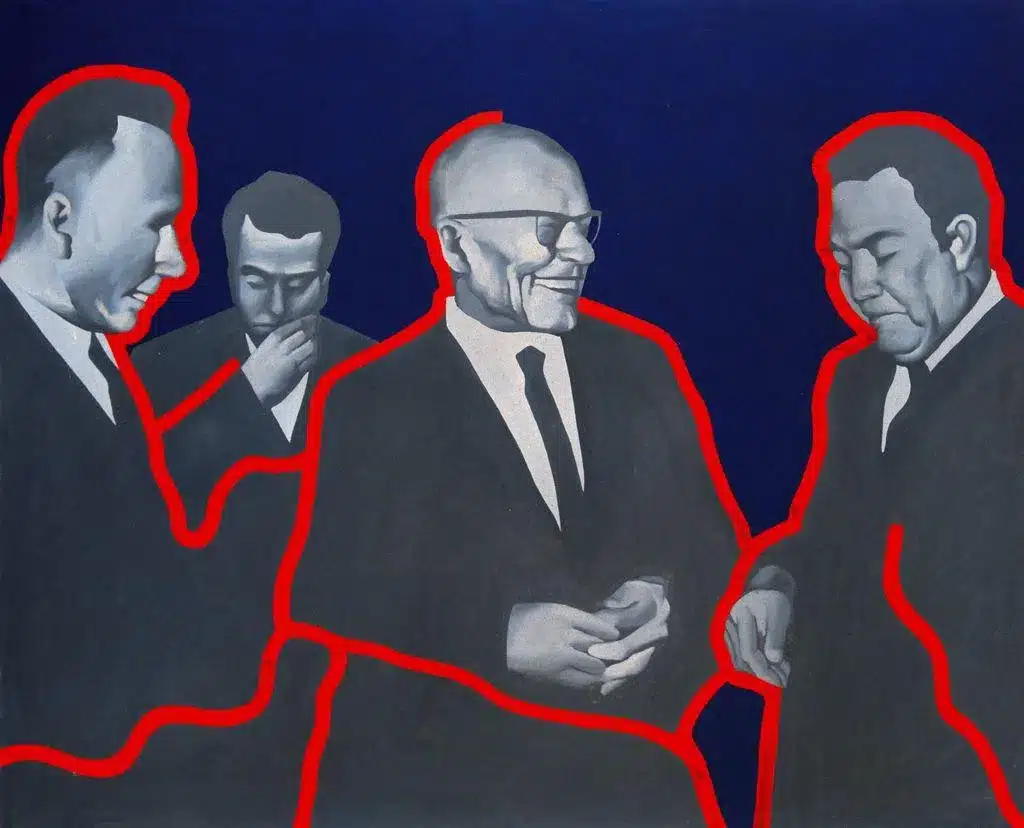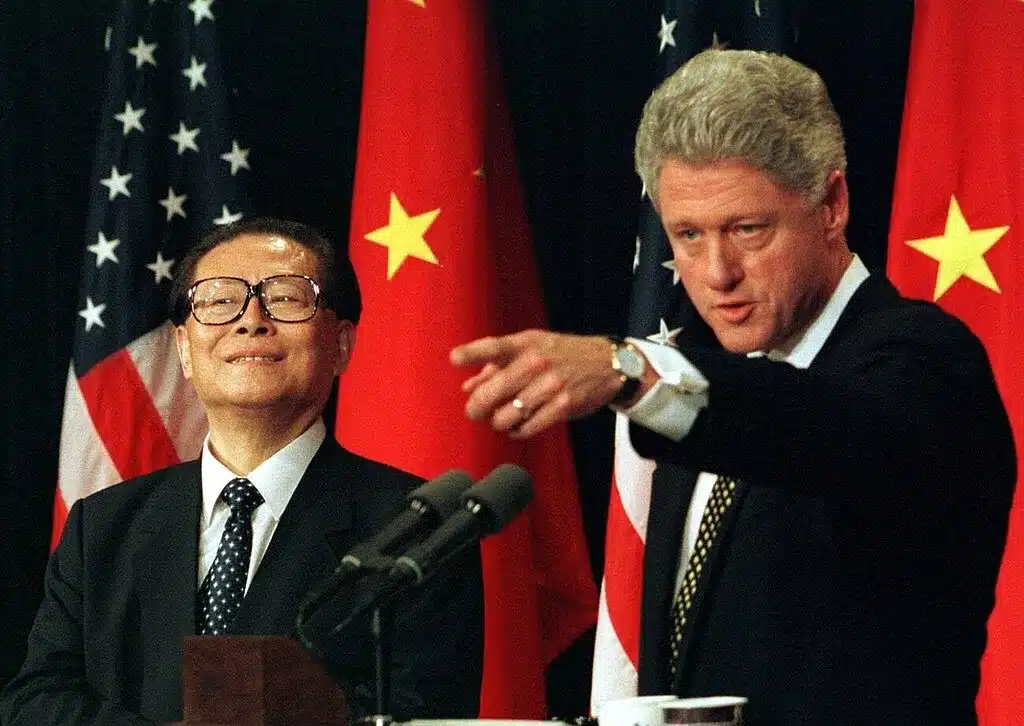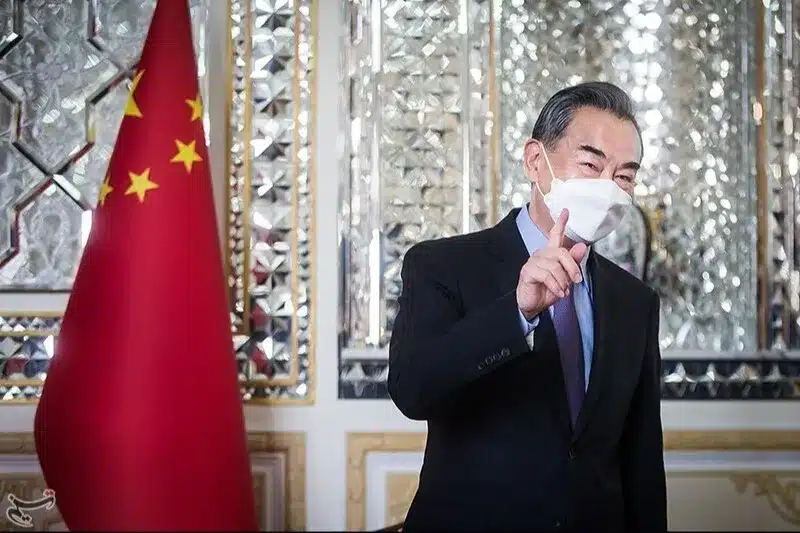To Strengthen Bilateral Ties, US-China Educational Exchange Must Go Deeper
- Opinion
 Tom Watkins
Tom Watkins- 10/07/2022
- 0
Tom Watkins served as the Michigan state superintendent of schools, 2001-05, and president and CEO of the economic counsel of Palm Beach County, FL., 1996-2001. He currently manages TDW and Associates, a global business and educational consulting firm. Watkins is a prolific author and public commentator on the U.S.-China relationship, and has been for nearly 4 decades since his interest was sparked by a 4th grade teacher. Some of his other publications can be found here.
When we invest in education it pays incalculable dividends for generations to come by enhancing the individual, families, communities and society at large. To continue to strengthen the most important bilateral relationship in the world today – that between the U.S. and China – we need to reestablish the strong educational bridges between our two countries that have been damaged by the COVID-19 pandemic.
When President Jimmy Carter met with Chinese leader Deng Xiaoping in 1979, two nations joined hands to create a connected and peaceful world. Perhaps the most remarkable thing these two leaders did was initiate student exchanges that spurred the rapid exchange of connectivity and knowledge.
After a 30-year hiatus, agreements were signed between the United States and China to advance scientific and student exchanges as part of Deng’s broad modernization efforts. In early 1979, the first 50 Chinese students, promising but poorly prepared, arrived in the United States. In the year after Deng’s visit, some 1,025 Chinese were in the United States on student visas and by 1984, fourteen thousand, two-thirds of whom were studying the physical sciences, health sciences, and engineering, were attending American universities.
With 3,000 Chinese students in the US, President Jimmy Carter famously said: “Tell him [Deng] to send 100,000.” They eventually did and then some.
Clearly both the U.S. and China have greatly benefited from the people-to-people exchanges, friendships, and awareness of each other’s system of government, economies, educational structures, and culture. I certainly did.
In 1988, I was approached about participating in an Eisenhower People-to-People exchange program. The goal of the program was to enhance international understanding and friendship through educational, cultural, and humanitarian activities involving the exchange of ideas and experiences directly among peoples of different countries and diverse cultures.
I was ecstatic about the prospect of fulfilling a lifelong dream of traveling to China to participate in such exchange. However, instead of participating in the People-to People program, which was under the guidance of Ken Dewoskin, then a Professor at the University of Michigan and now a Senior Advisor with the Chinese Services Group at Deloitte, I took another route. In 1988, I served in Michigan governor James Blanchard’s cabinet as the State Mental Health Director and was in the process of organizing an international mental health conference. With Professor Dewoskin’s assistance, we invited Chinese behavioral health scholars to attend and present at our international conference, at which Mrs. Rosalynn Carter, a champion of mental health services, was a keynote speaker.
Our Chinese guests would enthusiastically return the hospitality and invite us to travel to China as guests of the Chinese Communist Party (CCP) the following year. In late April 1989, a decade after Carter’s visit, I led a 30-person mental health exchange to the People’s Republic of China. At that time, amid the backdrop of rapid economic development and social change in post-Mao China, Tiananmen Square was coming alive and I spent several nights with there. I certainly did not know then that the students mourning and demonstrating there would eventually be suppressed in June. Ultimately the People’s Liberation Army turned on the people. I will never forget students asking me to ‘describe democracy, describe freedom’ in the months leading up to that fateful day.
What happens in China does not stay in China and what happened in Tiananmen curtailed our bridge building with China. Understanding how our governments manage the tensions and differences between us will not only affect each other, but all of humanity; tensions gradually thawed and the U.S. continued to build economic, cultural and educational bridges with China.
Henry Kissinger captured the essence of the value of knowing and understanding China when he said, ‘China is one of the central challenges of our time and we need to forge a deeper understanding between the U.S. and China’. Sadly, while Chinese students and scholars flocked to the U.S., it has been a relatively tiny stream of U.S. students going the other way. In 2001, a National Geographic Magazine declared, “Americans are painfully ignorant about all things Asia, especially China.” For most Americans, little has changed in this regard.
One notable development, however, was the foundation of the Schwarzman Scholars program. American financier Stephen A. Schwarzman, founder of the private equity firm Blackstone, has long understood the value of ensuring more people in the West know about China. He established an international scholarship program in China endowed with $300 million (¥1.8 billion). The program one of the largest-ever, internationally funded philanthropic effort in China’s history and supports 200 scholars a year for study in China. Forty-five percent of the students hail from the United States; another twenty percent from China, with the remaining students representing Europe, South Korea, Japan, and India. At the time, the New York Times reported, “The program’s creation underlines the tremendous importance of China and its market to Wall Street financiers and corporate leaders who have become increasingly anxious over growing security and economic frictions between China and the West.”
When announcing this scholarship Schwarzman said, “When Cecil J. Rhodes created the Rhodes Scholarship program in 1902 to promote international understanding, Europe was at the center of gravity for the world’s economy; and the United States, the British Empire, and Germany were the world’s most influential global players. While the 20th century was defined by U.S. ties to Europe, there is no question that the nature of China’s international relationships will play at least as important a role in this century. In fact, many believe the 21st century will be the Asian century.”
However, the Schwarzman-scholars program alone is not enough. The Schwarzman model has proven successful and valuable. Yet, especially as tensions between our nations flare and anti-China rhetoric heats up here at home, we need to reignite the educational process – people-to-people and student-to-student exchanges – much earlier than at the Schwarzman model of graduate-level education.
I want wealthy philanthropists in the US and China who value the relationship to step forward and fund a Schwarzman-like scholar program for high school and middle school students around the globe. We need to connect, engage, ponder, create and enlighten the youth of the world to help us frame a shared vision and common agenda that understands our strengths, weaknesses, and our differences, all the while embracing our collective humanity in a way that can and will shape the world at an even younger age.
I am a first-generation college graduate who was an average student at best. Education and the opportunities it presented changed my life. I would like this program to do the same for youth today. I would like these scholarships—which build off the legacy of Carter and Deng— to tap into, not just the elite students with privilege, but ‘average’ American and Chinese kids from the heartland of our respective nations.
Clearly the center of the world is shifting in China’s direction and these scholarships to study in and around China bode well for our collective future. In a world that will be increasingly shaped by technology, Big Data, AI and US-China relations, we will be well served by bringing our youth together to find a common bond around understanding each other and our shared humanity. Let us dream and work towards a brighter future together.







